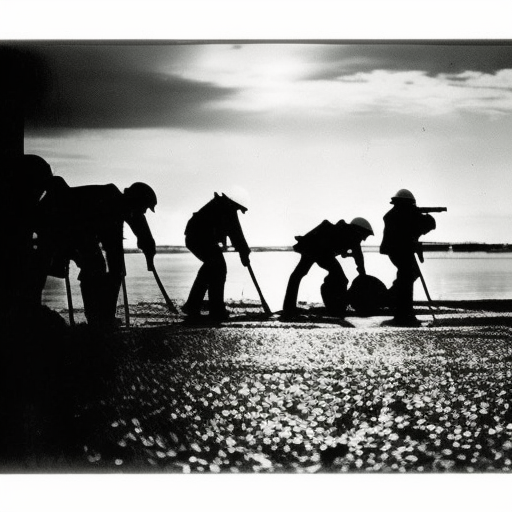Summary: Second Schleswig War
The Second Schleswig War, also known as the Danish-Prussian War, was a conflict that took place from 1864 to 1865. It was fought between Denmark on one side and Prussia and Austria on the other. The war was primarily over the control of the duchies of Schleswig and Holstein, which were located in the northern part of the Jutland Peninsula.
Background
The duchies of Schleswig and Holstein had a complicated political status. While they were officially part of the Danish kingdom, they also had a close relationship with the German Confederation. This led to tensions between Denmark and the German states, particularly Prussia, which sought to expand its influence in the region.
Causes of the War
The immediate cause of the war was the Danish government’s decision to incorporate Schleswig into the Danish state, a move that was seen as a violation of the London Protocol of 1852. This protocol had guaranteed the autonomy of the duchies and their right to self-government. Prussia and Austria, as guarantors of the protocol, saw Denmark’s actions as a threat to the German Confederation and decided to intervene militarily.
Course of the War
The war began in February 1864 when Prussian and Austrian forces invaded the duchies. The Danish army, led by King Christian IX, put up a spirited resistance but was eventually overwhelmed by the superior numbers and firepower of the enemy. The Prussian army, under the command of General von Wrangel, achieved a series of victories and quickly advanced into Danish territory.
Treaty of Vienna
In August 1864, the Treaty of Vienna was signed, ending the first phase of the war. According to the terms of the treaty, Denmark ceded the duchies of Schleswig, Holstein, and Lauenburg to Prussia and Austria. The duchies were then divided between the two victors, with Prussia taking control of Schleswig and Austria taking control of Holstein and Lauenburg.
Prussian-Austrian Conflict
The division of the duchies between Prussia and Austria created tensions between the two powers. In 1866, these tensions escalated into the Austro-Prussian War, which resulted in a decisive victory for Prussia and the exclusion of Austria from German affairs. As a result, Prussia gained full control over Schleswig-Holstein and incorporated the duchies into its expanding empire.
Impact
The Second Schleswig War had significant political and cultural consequences. It marked a turning point in the history of the Danish-German relationship and led to a strengthening of German nationalism. The war also had a lasting impact on the Danish national identity, as it highlighted the vulnerability of the Danish state and the need for political reforms.
Conclusion
In conclusion, the Second Schleswig War was a conflict fought between Denmark, Prussia, and Austria over the control of the duchies of Schleswig and Holstein. The war resulted in a decisive victory for Prussia and Austria, leading to the division of the duchies between the two powers. The war had significant political and cultural consequences, shaping the future of both Denmark and Germany.












